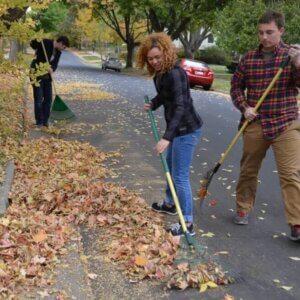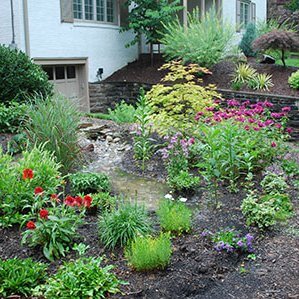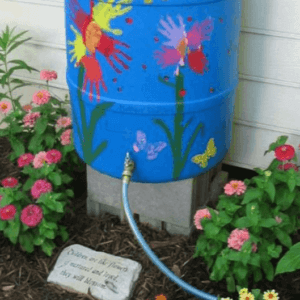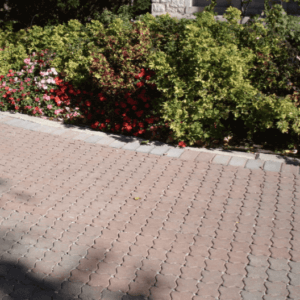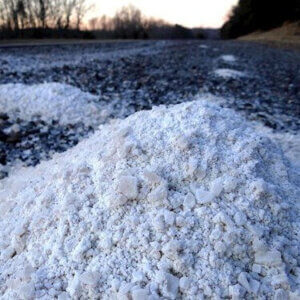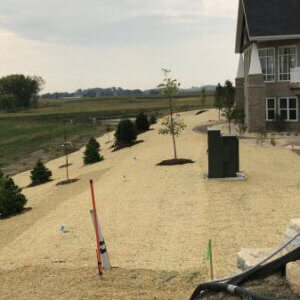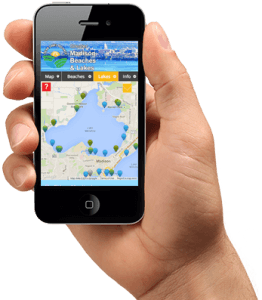Help our lakes from your home
Many small actions can help create sustainable change. The actions below show ways to help in our own neighborhoods, which will protect our lakes and waters while also helping our flood-prone neighbors.
Rake for the lakes
One of the best and easiest things you can do is to rake leaves from the street gutter in front of your home. Clean streets make for healthy lakes! Fall leaf litter is loaded with algae-loving phosphorus, and a fertile “tea” is released into storm sewers that connect to our lakes and streams every time it rains. Help keep our lakes clean by raking leaves out of the street in front of your home. Leaves can be composted, mowed into the lawn, or used as a mulch to protect and nourish trees, shrubs, and plants.
Create a rain garden
A rain garden is a small depression in your yard that collects and soaks up rainwater. Usually planted with beautiful wildflowers, rain gardens will add curb appeal to your home while attracting a variety of songbirds and butterflies. They also keep our lakes clean by giving rainwater a place to go as it washes off driveways, patios, and rooftops.
Wisconsin DNR’s Rain Garden How-to Manual for Homeowners
University of Connecticut Rain Garden Manual
Harvest rainwater
Connecting a rain barrel to your roof downspout allows you to collect, store, and repurpose rainwater and save money on your water bill. Your plants will love the chlorine-free water, especially when soils dry up between storms. Many of today’s models connect directly to your downspout, are sealed (no mosquitos!), and allow water to return to the downspout once full (no overtopping!). Make sure you direct all your roof downspouts to a rain barrel, rain garden, or to your lawn.
Sink the rain with porous materials
Protect our lakes and streams by first limiting the “footprint” of hard, water-impervious surfaces around your home. If you’re considering a new patio or driveway, opt for porous pavers or water-permeable pavement as affordable and attractive alternatives to traditional concrete or asphalt. During the winter, work to limit your use of de-icing salt, which is damaging to cars, driveways, and soils, and pollutes our lakes and groundwater.
Be aware of what you send down the drain
Conserving water in and around your home helps protect our drinking water aquifers AND our lakes. Less water use means fewer impacts on our groundwater aquifer and lower levels of water softener salt entering the environment. Did you know that our community wastewater plant is not able to treat everything sent down the drain? This includes salt, medicines, and even antibiotics, which can pass right through the treatment process and end up polluting our waters. The MedDrop program provides a safe way to dispose of unwanted pharmaceuticals.
Pick up after your pets
Picking up after your pets is the right thing to do to protect our waters from harmful pathogens and phosphorus. It’s also the law! Stormwater can carry dog feces easier and for longer distances than you might think. Not only will you be protecting our lakes, you will also be respecting your neighbors and the community by keeping our parks and neighborhoods clean.
Use less salt on pavement
Did you know chloride concentrations in our lakes have been increasing for decades? Given our icy winters, salting is an almost unavoidable practice for maintaining safety. However, using too much salt or using it in the wrong situations can be as wasteful as it is harmful. According to Wisconsin Salt Wise, a twelve ounce coffee mug full of salt is enough to treat a twenty foot driveway or ten sidewalk squares. Targeted and conservative de-icing techniques are important for protecting our drinking wells and preventing toxicity to sensitive plants and animals.
Keep soil protected during land-disturbing projects
On a per-area basis, more sediment enters our lakes from construction sites than any other land use. If you’re planning a landscaping or building project, be sure to protect disturbed and exposed soils so sediment doesn’t wash into our storm drains, streams, and lakes whenever it rains.
If you want more personalized direction or would like to get involved in another program, check out volunteer opportunities or contact us!
Photos courtesy: Friends of Lake Wingra, Three Rivers Rain Garden Alliance, DIY Network, Water Environment Federation, and Dane County Land and Water Resources Department
